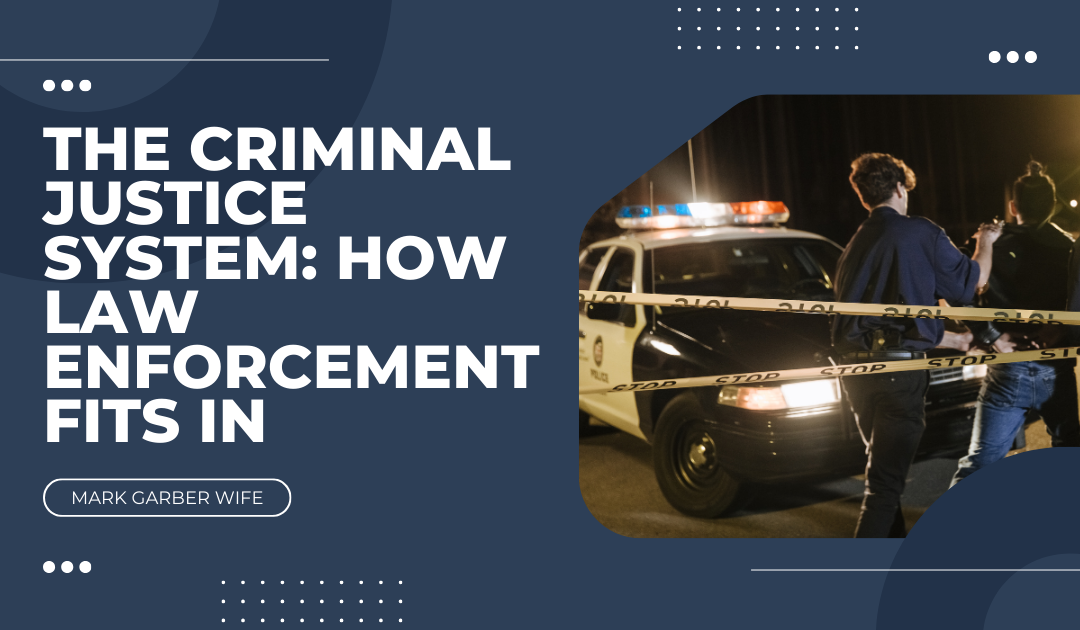The criminal justice system is a vital aspect of any society, ensuring that laws are enforced, justice is served, and individuals are held accountable for their actions. While the system is multifaceted and involves various stakeholders, law enforcement plays a central role in its functioning. From the moment a crime is committed to the point of conviction or rehabilitation, law enforcement officers are on the front lines of ensuring public safety and upholding justice.
The primary responsibility of law enforcement is to prevent and investigate crimes. Officers are the first to respond when an offense occurs, whether it’s a theft, assault, or more serious crime. Their training and presence in communities are crucial for both immediate response and ongoing crime prevention. When a crime is reported, officers are responsible for securing the scene, collecting evidence, and speaking to witnesses. Their actions during the initial stages of an investigation often determine the direction and success of the case.
Once a crime is committed, law enforcement must work in close collaboration with other parts of the criminal justice system, such as the courts and correctional facilities. After gathering evidence and making an arrest, officers submit their findings to prosecutors, who decide whether to pursue charges. In this sense, law enforcement is the link between the public and the legal system. Officers serve as witnesses in trials and testify to the facts gathered during the investigation. Their detailed reports and thorough documentation are key in ensuring that justice is not only pursued but achieved.
Law enforcement is also responsible for maintaining order and enforcing the laws of the land. This extends beyond responding to crimes. Officers regularly conduct traffic stops, monitor suspicious activity, and patrol neighborhoods to deter criminal behavior before it occurs. Their presence is meant to reassure the public, but it also sends a message to would-be offenders that criminal behavior will not be tolerated. In addition, law enforcement is tasked with ensuring that laws are applied fairly, regardless of a person’s background or status, helping to uphold the principle of equality before the law.
The relationship between law enforcement and the courts is significant, as officers are the primary witnesses during trials. They provide critical testimony based on the evidence gathered during investigations. A police officer’s credibility is essential in ensuring that a case is pursued effectively. In cases where evidence or testimony is disputed, law enforcement officers often find themselves at the center of legal battles, defending the integrity of their work. Their detailed reports, photographs, and witness statements help ensure that trials proceed smoothly.
In addition to their role in investigations and arrests, law enforcement officers are responsible for protecting the rights of citizens. They must ensure that individuals are treated fairly, both when being questioned and during arrests. The concept of due process is a cornerstone of the American legal system, and law enforcement officers are required to follow strict guidelines when making arrests, gathering evidence, and questioning suspects. Ensuring that constitutional rights are respected is one of the fundamental responsibilities of officers.
Law enforcement also plays an important role in post-conviction, ensuring that convicted individuals serve their sentences as prescribed by the courts. Whether it’s supervising probation, monitoring parole, or transporting inmates to correctional facilities, law enforcement ensures that court orders are carried out. In some jurisdictions, police officers may also be involved in rehabilitation programs, assisting in reintegrating offenders into society in a constructive way. This shift towards rehabilitation, alongside traditional punitive measures, is becoming an increasingly important aspect of the criminal justice system.
Ultimately, law enforcement is deeply integrated into every stage of the criminal justice system, from initial crime prevention to final sentencing. While many think of law enforcement only in terms of arrests and investigations, officers are integral participants in a much larger system aimed at achieving justice. Their work helps ensure that criminal behavior is addressed and that offenders are held accountable, while also protecting the rights of individuals in society. The criminal justice system is a complex web of interdependent parts, and law enforcement serves as the critical first step in making sure that justice is delivered.

